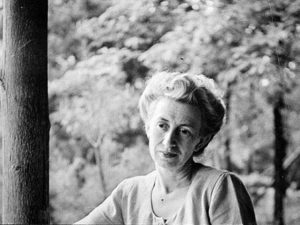
By FLETCHER DEAL
While some would think that Piedmont is rather isolated from the pages of world history, the opposite has been found.
Piedmont has notable connections to major scenes of history and has been affected by the changing times.
One particularly remarkable person with strong ties to Piedmont is Lillian E. Smith, a prominent Southern woman who, living in a time of Jim Crow laws, denounced them as evil.
Smith was born in Jasper, Fla. in 1897. That same year, Piedmont College, under the name J.S. Greene Collegiate Institute, was formed.
Smith’s family’s business collapsed in 1915, sendingthe family to Rabun County, Ga.
That same year, Smith attended Piedmont College. She only attended for one year before returning to Rabun to help run her family’s camp.
In 1922, she traveled to China to teach music at a Methodist missionary school, but when her parents’ health started failing in 1925, she returned to Georgia to take over the running of the camp.
In 1944, Smith wrote “Strange Fruit,” the novel for which she is most known. The book is about illicit, interracial love.
Her advocacy for equal rights is also seen in much of her work.
“Segregation is spiritual lynching,” she once wrote.
She battled cancer from the 1950s until her death in 1966.
“Though [Smith’s] fame may have diminished since her death, she was an important early voice in the movement for civil rights in the American South, one of the first white southern writers to confront the evils of racism and injustice in a forthright, uncompromising manner,” says the Georgia Encyclopedia, an online archive of Ga. history.
Visitors of the Lillian E. Smith Center, located in Rabun County, can receive more information about Smith and her work, see where she lived and spend time in the natural environment surrounding the center.
















